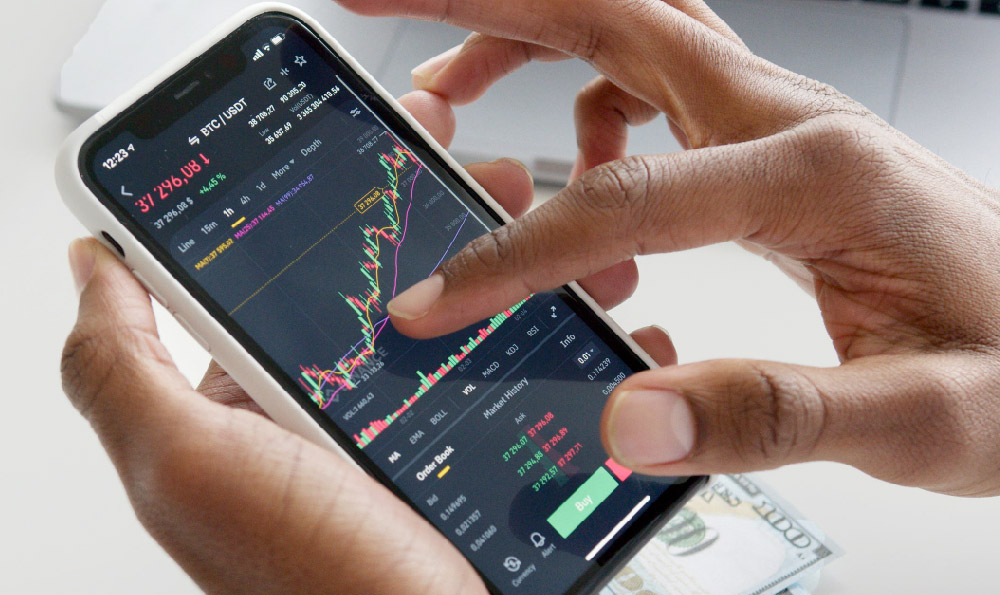Spotify, the ubiquitous streaming giant, has revolutionized how we consume music. Millions subscribe, artists clamor for exposure, and podcasts thrive. But the question remains: can you personally profit from Spotify? The answer, like most things in the financial world, is multifaceted and depends heavily on your position within the music ecosystem. Let's dissect the various avenues for potential earnings, acknowledging the inherent complexities and realistic expectations.
For the average listener, the most direct route to "making money" with Spotify is indirect: saving money. Before Spotify and its competitors, music lovers were reliant on purchasing physical CDs or individual tracks. The cost of building a substantial music library could easily run into the thousands. A relatively inexpensive monthly Spotify subscription grants access to a vast catalog of music, effectively eliminating the need to purchase albums. This savings, if properly managed and redirected into investments or savings accounts, translates into a tangible financial benefit. It's a subtle, almost invisible form of "earning," but it's nonetheless real. By cutting down on music acquisition costs, individuals can free up funds for other financial goals, contributing to their overall wealth accumulation.
However, the more intriguing question revolves around generating actual income. For artists, Spotify's payout model is notoriously complex and often frustrating. While some artists have achieved considerable financial success through the platform, the vast majority struggle to earn a living wage. The per-stream royalty rates are notoriously low, varying based on factors such as the listener's location, subscription type (premium vs. free), and the artist's distribution deal. To earn significant income, an artist needs millions of streams, a level of popularity attainable by only a tiny fraction of musicians. Furthermore, the revenue is often split between the artist, record label (if applicable), publisher, and other intermediaries. Building a dedicated fanbase, actively promoting music, and diversifying revenue streams beyond Spotify are crucial for artists seeking financial stability in the digital age. Touring, merchandise sales, licensing deals, and crowdfunding are all vital components of a sustainable music career. Relying solely on Spotify revenue is a recipe for financial hardship for most independent musicians.

For podcasters, the opportunity for financial gain on Spotify is arguably more promising. While the podcasting ecosystem also relies on advertising and sponsorship revenue, the CPM (cost per mille, or cost per thousand listeners) rates tend to be higher than the per-stream royalties for music. Furthermore, podcasting allows for more direct engagement with the audience, fostering a stronger sense of community and loyalty. This can translate into opportunities for selling merchandise, offering premium content through platforms like Patreon, and building a personal brand that extends beyond the podcast itself. Spotify has also invested heavily in its podcasting platform, acquiring studios and exclusive content, further signaling its commitment to the medium. Podcasters can leverage Spotify's reach and marketing tools to grow their audience and attract advertisers.
Beyond creating content, other potential avenues for profiting from Spotify are more indirect and speculative. One approach involves investing in companies within the broader music and audio streaming ecosystem. Spotify itself is a publicly traded company, and its stock price can fluctuate based on market sentiment, subscriber growth, and financial performance. Other companies involved in music distribution, publishing, or audio technology might also present investment opportunities. However, investing in individual stocks carries inherent risks, and thorough research and due diligence are essential. Investors should carefully consider their risk tolerance and investment horizon before allocating capital to these ventures.
Another less direct method is by utilizing Spotify as a tool for professional development or business promotion. For example, a marketing professional might use Spotify data and analytics to understand consumer behavior and tailor marketing campaigns accordingly. A DJ or music curator might use Spotify playlists to showcase their skills and attract clients. A business owner might use Spotify advertisements to reach potential customers. These strategies don't directly generate Spotify revenue, but they leverage the platform to enhance other income-generating activities.
Finally, it's important to acknowledge the ethical considerations surrounding Spotify's business model. Concerns have been raised about the fairness of artist compensation, the concentration of power in the hands of a few major labels, and the impact of streaming on the overall music industry. Consumers who are passionate about supporting artists might choose to supplement their Spotify subscriptions with direct purchases from artists or by supporting independent music platforms that offer more favorable compensation models.
In conclusion, while the average listener "makes money" on Spotify through savings, directly earning significant income from the platform is challenging. Artists require massive streams and diversified revenue streams. Podcasters may find more immediate financial opportunities. Investing in the music ecosystem or leveraging Spotify for professional purposes are also potential avenues. Ultimately, understanding the nuances of the music industry and the platform's revenue models is crucial for anyone seeking to profit from Spotify. The promise of easy money is largely a myth; success requires hard work, strategic thinking, and a realistic understanding of the platform's limitations and opportunities.











